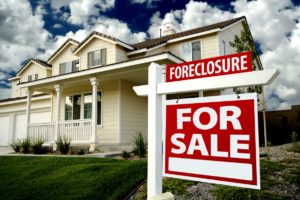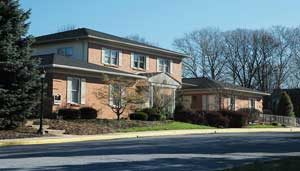
I have decades of experience in Pennsylvania Foreclosure, Real Estate, and Bankruptcy Law serving people and businesses in Reading, PA, and throughout Berks County and Pennsylvania. No one will work harder for you to retain your home.
Foreclosure Attorneys and Pennsylvania Foreclosure Law may have been the last things on your mind. You had nothing to worry about because you’re conscientious and always made timely payments. However, in a matter of just weeks, the unthinkable happens. The job you excelled at and counted on to support yourself and your family is gone, at least temporarily. Or officials may force you to close your successful business.
- The government took stop-gap measures to mitigate the financial damage.
- Furthermore, the federal government has put protections in place to prevent foreclosures temporarily.
However, no one knows when things are returning to normal, and the mitigation measures won’t last forever. Transitioning from being protected to being “on your own” could be tricky. Therefore, it’s reasonable for a thinking person to hope for the best but plan for the worst. Preparing for the worst includes understanding
- Pennsylvania Foreclosure Law; and
- if needed, how Foreclosure Attorneys can help you through the process and perhaps save your home.
Understanding What You Signed When You Bought a Property in Pennsylvania
Unless you bought a property for cash, you signed a
- Promissory Note – A promissory note is appropriately named because you promise to repay a loan and specify the terms for repayment.
- Mortgage – The mortgage is the security for the promissory note. Therefore, if you fail to comply with the terms of repayment in the promissory note, the bank or other lending institution can seize your home. The lender will then sell it to recoup all payments and interest owed.
How Many Payments Can I Miss Before I Risk Foreclosure?
Most lending institutions have a grace period. The lender assesses a late fee if you pay after the grace period. The terms in your promissory note explain the grace period and late fees. Therefore, you’re OK if you’re simply late with a payment but eventually make the payment in full, including the late fee within the grace period. However, if you know that you cannot make a payment or payments, it’s advisable to contact your lending institution in advance. Communicating with your lender in advance shows good faith and willingness to fix the problem.

Our Foreclosure Attorneys will do everything possible to help you avoid this! No one in Berks County will work harder for you.
Pre-Foreclosure
Pre-foreclosure begins if you completely miss a payment(s). Federal Mortgage Servicing Laws require that the lending institution contact you by phone within 36 days or in writing within 45 days of the first missed payment. We previously recommended that you contact your lender in advance. However, it’s crucial to respond to the calls and letters because doing so allows you to amicably resolve the delinquency problem through loan modifications, a short sale, forbearance, or a payment plan.
Foreclosure
Generally, a Foreclosure begins after 120 days of delinquency.
If you haven’t abandoned your home, Federal Law requires that your lender notify you with a Notice of Intent 30 days in advance. The Notice of Intent allows you to correct the delinquency before Foreclosure proceeds. Furthermore, the lender’s 30-day notice also explains your rights, including possible available assistance through the Pennsylvania Housing Finance Agency.
If you did abandon your home, the lender could pursue a Fast-Track Foreclosure. There’s no required 30-day advance notice, and the lender is not required to inform you of programs available to avoid foreclosure. The sheriff will most often order a Foreclosure Sale within 60 days.
Judicial Foreclosures
Pennsylvania Law requires lending institutions seeking a Foreclosure to file a lawsuit in state court. The lending institution is the plaintiff and must file a complaint with the court. The sheriff serves the complaint, and a court summons to you, the property owner. In Berks County, Pennsylvania, you have ten days to respond with defenses and claims. If you don’t respond to the complaint, the lender can seek a Default Judgment.
Note: Our Foreclosure Attorneys can evaluate the merits of your defenses and claims against the lender and help you properly present them.
If you respond to the complaint, the lending institution will usually seek a Summary Judgment in the lender’s favor. The court will grant a Summary Judgment if the
- defenses against the complaint are unfounded; and
- claims against the lender lack merit.
The lawsuit will go to trial if the court denies a Summary Judgment. Contested Foreclosures can take several weeks or months.
Final Judgment of Foreclosure
The court will issue a Final Judgment of Foreclosure if
- the court issued a Summary Judgment; or
- you lose the trial.
The sheriff will then schedule a Foreclosure Sale for your property.

My name is Richard V. Grimes, Jr. I’m an experienced Foreclosure Attorney and I look forward to helping you.
How Does a Foreclosure Sale Work in Pennsylvania
Foreclosure Notices are
- posted on the Foreclosed Premises at least 30 days before the date of the sale;
- served to all parties related to the Foreclosure at least 30 days before the sale; and
- lastly, published in a newspaper once a week for three weeks, with the first publication at least 21 days before the sale date.
The sheriff sells the Foreclosed Property to the highest bidder, the lender, or a third party. If the amount received for the property:
- Exceeds the amount owed plus any additional costs incurred by the lender, the court uses excess funds to satisfy junior liens like Home Equity Lines of Credit (HELOC) loans or judgment liens. If excess funds exist after satisfying all junior liens, the court transfers that amount to the foreclosed party.
- If it is less than the amount owed plus costs, the lender can pursue a Deficiency Judgment within six months of the Foreclosure Sale. Pennsylvania Law limits a Deficiency Judgment to the difference between the amount owed and the Property’s Fair Market Value at the time of the Foreclosure Sale.
Is There a Way I Can Reclaim My Home After a Foreclosure Sale?
Pennsylvania is not a redemption state. Therefore, there is no way to regain possession of your home after a Foreclosure Sale. Consequently, you must vacate the premises. The new owner may offer you “cash for keys” to avoid a separate eviction lawsuit if you don’t.
You Won’t Find Better Foreclosure Attorneys in Reading, PA or Berks County
We
- are a family-owned and operated law firm and understand the financial distress and emotional upheaval trying times place on you and your family;
- address your Foreclosure with the same attention to detail as we would our own;
- can help you make the tough decisions Foreclosures require;
- make sure your defenses and claims are correct and properly documented; and
- ultimately, ensure every reasonable option is explored, including declaring Bankruptcy, that might save your home.
Contact Us Online or Call Us at 610-670-9000 today.

Miller Law Group’s Berks County Law Offices are in West Lawn near Reading, PA.
We offer
- Convenient, Easy, and Safe Free Parking;
- Accessible Access Ramp; and
- Spacious, Well-Lit Offices

